MARFAM FAMILY WEEKLY E-NEWSLETTER 6 DECEMBER 2023
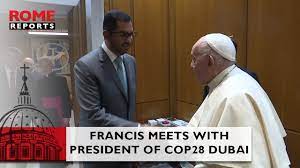
Pope Francis concluded the presentation he had prepared for COP28 by referring to St Francis and his Canticle of the Creatures composed, interestingly, 800 years ago in 1224. He explained how Francis was already blind, in severe pain from the stigmata, the wounds of Jesus on his body, and he was close to death and yet he composed a hymn of praise to God for all of creation to which he later added a verse on for forgiveness.
The Pope also made a virtual input in the newly launched FAITH PAVILION. In other words, he was making the point that faith and religion matter in all things. in all kinds of ways. At COP28 of course it is in the context of the harmful reality of climate change and its impact on creation, as well as protection of our common home, the poor and peace.
The Holy Father had been advised not to attend COP28 in DUBAI because of his health. Joining 70 000 participants and being in a very controlled air-conditioned environment, would not have been good for his respiratory condition and his advanced age. In his prepared speech, delivered by Cardinal Parolin, the Vatican Secretary of State, he stressed the urgent need for action, with some specific points which he had already included in Laudate Deum, his recent Apostolic Exhortation which continued the messages of Laudato Si. He spoke of the need for binding forms of energy transition. They must be efficient, obligatory and readily monitored and required drastic, intense and deep commitment. These well-known documents and his stress on caring for our common home constantly and meaningfully, emphasize the importance of the faith element: using the term “creation” versus “nature,” and making appropriate use of scripture and theology.
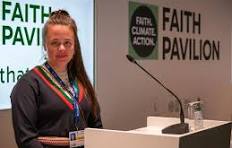
COP28 an annual United Nations sponsored event, is hosted this year by Dubai and its leaders. The COP President Dr. Sultan Al Jaber stated, “Climate change cares little about our politics, our borders, or our differences in religion. Our success depends on our ability to come together as one global community to solve it, and global faith communities play a significant role in instilling awareness of the shared social responsibility of all people worldwide towards environmental protection. Faith communities have come together in a truly historic moment of hope, peace, and optimism, uniting around a shared commitment to protect our planet.” He played a major role in establishing the FAITH PAVILION with a number of other religious leaders including the UNEP ENVIRONMENTAL PROGRAMME, Muslim Council of Elders and the Holy See. Pope Francis’ involvement in this interfaith project has captured the Church’s attention a number of times. The encyclical Fratelli Tutti is one example of his passion for interfaith collaboration. It contains the declaration he and the Grand Imam Ahmad Al-Tayyeb signed in 2019 which focused mainly on aspects of human social friendship, freedom, justice and peace, Both these men sent virtual statements of support to COP 28 at the launch of the FAITH PAVILION. .
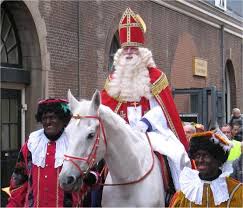
What about the role of families in all the weighty issues addressed in COP 28 and related matters too. There are many examples in our day of current issues with a common foundation but with different experiences. Racism, slavery, colonialism and missionary activity, interdenominational and interfaith dialogue are examples. This was highlighted for me in a way in the example of Sinterklaas and Zwarte Piet, which are family traditions in the Netherlands which went back to my childhood 70 years ago. There have been quite major changes in this celebration in recent years but historically too. Do families still expect that the good bishop Sint Nikolaas (Sinterklaas) who rewards good children with gifts comes with his black helper who punishes bad children beating with his stick or putting them into his sack and sending them off to Spain? That particular set of beliefs changed many times over the centuries. St Nicholas, the original bishop lived in Turkey in the 4th century, and a tradition of him being a good, kind and generous man was first noted in church accounts in the 14th century. Depending on the context at times he was a saint, at times a bogeyman but somehow has remained a Catholic bishop. His black helper, of course, had to undergo many changes as charges of racism outlawed this interesting character. The helpers are now just men and women in 16th century costumes with or without having their faces painted black. The European Sinterklaas /St Nicholasas was exported to the US and has become the Santa Claus of today.
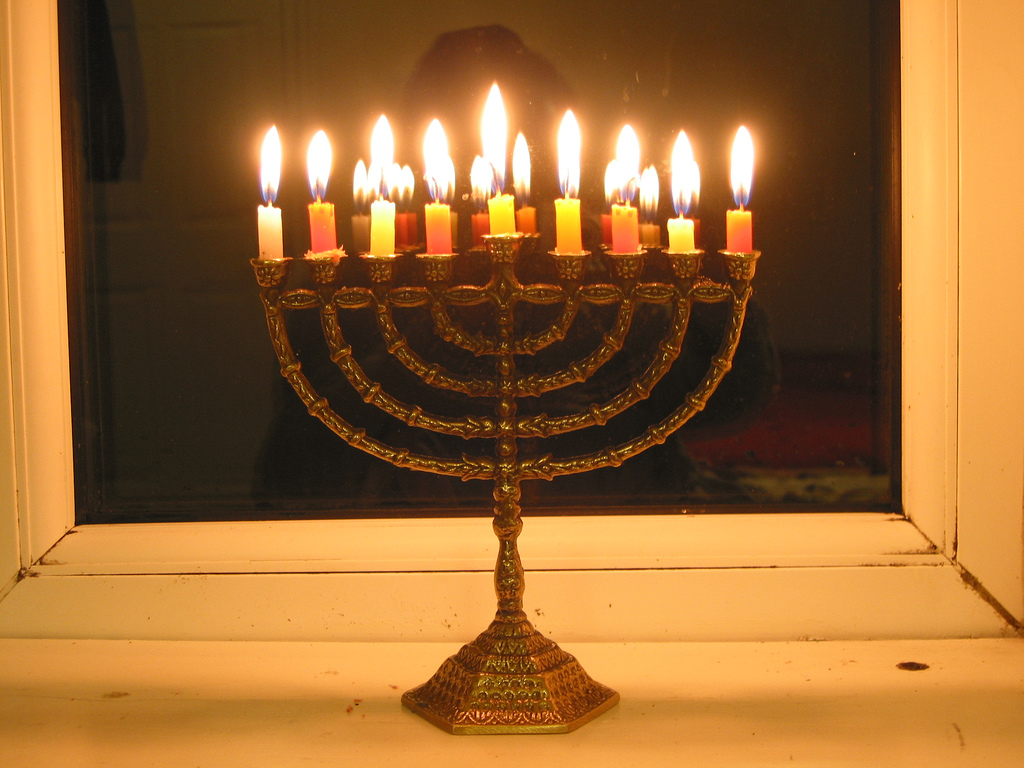
St Lucy, another virgin martyr saint with a feastday in December, had her eyes gouged out in the early church persecution era. She is venerated as a patroness for the blind, but also of light. Light connects us with the 8 day Jewish tradition of Hannukah, the Festival of Light dating from pre-Christian times and contained in the books of Maccabees. The Jews were engaged in a liberation war, at a time when the Temple had been desecrated by the foreign ruler king Antiochus, Their victory and the rededication of the temple is celebrated in this festival. The story behind Hannukah is that there was only enough oil for the candles for one day, but they miraculously burned for eight days.
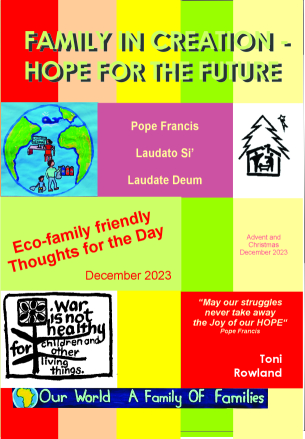
Faith is part of human nature. Religions have at times been a unifying factor but all too often a divisive one. We are in the 1st week of Advent, awaiting the coming of the Lord. The very events that are commemorated at this time and form the basis for the Thoughts for the Day for December also published in MARFAM’s booklet FAMILY IN CREATION, HOPE FOR THE WORLD. We are still within the 16 days of Activism against the abuse of women and children. COP 28 itself and most specifically the wars raging at this time in the Holy Land, in Ukraine, Sudan and other parts of Africa are witness to the division of nations, mainly on political grounds, but with a strong element of religion too, as has been the case for centuries.

In his video address, His Holiness Pope Francis said: “Today, the world needs alliances that are not against someone, but for the benefit of everyone. Let us, as religious representatives, set an example to show that change is possible, to demonstrate respectful and sustainable lifestyles, and let us fervently ask the leaders of nations to preserve our common home”. Forming such alliances and Inviting religions to work together for the common goods of peace, care for creation preserve it for the future of our families and our world of families of many kinds, human, animal and plant. That is MARFAM’s December theme “FAMILY IN CREATION – HOPE FOR THE FUTURE.” TR FAMILY WEEKLY 6 DECEMBER 2023
THOUGHT FOR THE DAY ST NICHOLAS
6 December. St Nicholas. On the last day of school at their assembly young Nick had been given a task to speak about St Nicholas, the original Santa Claus, who had been a bishop in the very early days of the church. He said, “The story is told that he was particularly generous, especially with the poor, giving them food and clothing. How this all became commercialised into giving expensive presents is not clear, but our class decided to collect food and clothes for the homeless people who live in the veldt near our school. The principal arranged for us to meet with some of them and they told us a lot about their life and how they were separated from their families because of poverty. We felt pleased to help a little. And I told my folks I really don’t want an expensive present this year.”
Scripture: Then I heard the voice of the Lord saying, ”Whom shall I send? Who will be our messenger?” I answered, “here I am, send me.” Isaiah 6:1-8. Pope Francis: “Do not turn your face away from anyone who is poor” (Tob 4:7). These words help us to understand the essence of our witness from the Book of Tobit. Tobit’s advice to his son, Tobias, Whenever we encounter a poor person, we cannot look away, for that would prevent us from the face of the Lord Jesus. Consider his words: “from anyone who is poor”. Everyone is our neighbour, regardless of the colour of their skin, social standing, the place from which they came, if I myself am poor, I can recognize my brothers or sisters in need of my help. We are called to acknowledge every poor person and every form of poverty, abandoning the indifference and the banal excuses we make to protect our illusory well-being. From Message on the 7th World Day of the Poor 2023.
Reflect, share, and pray: This Christmas season year what can we do as individuals and as a family to help the poor in some way, even if we are not well-off ourselves?

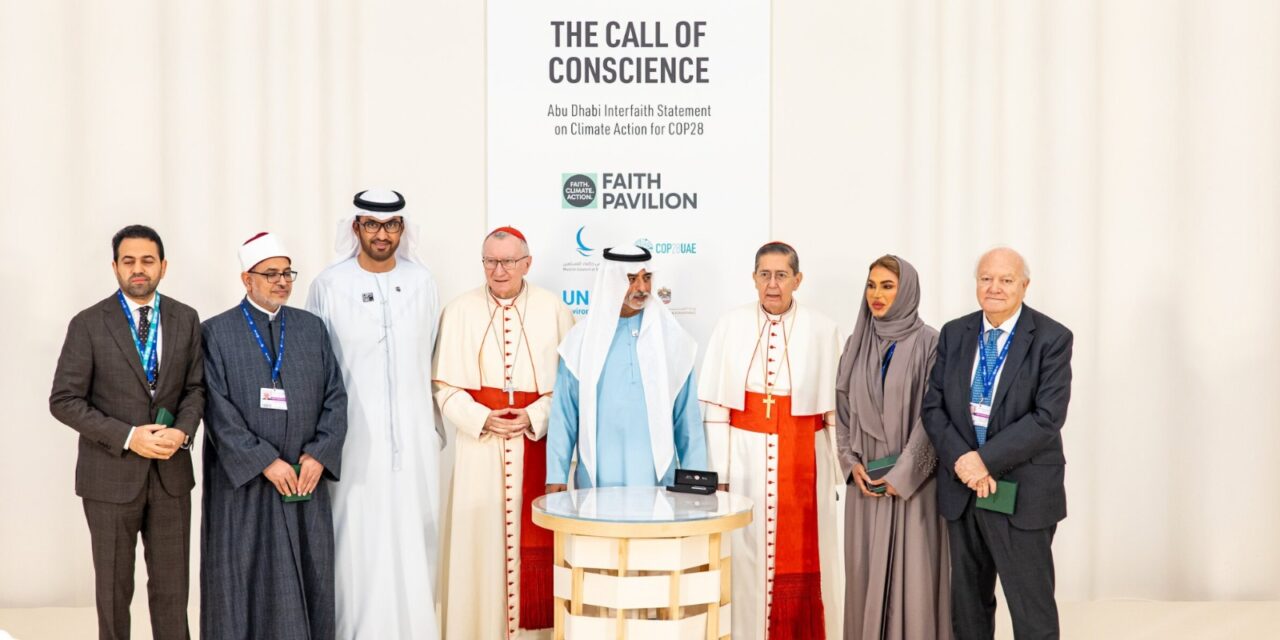


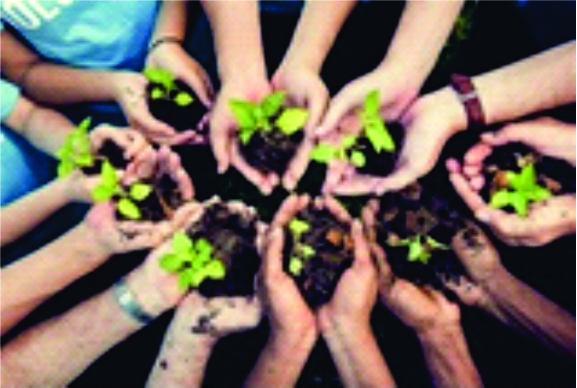
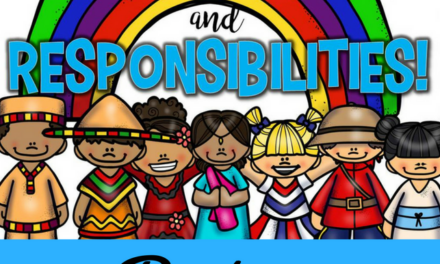
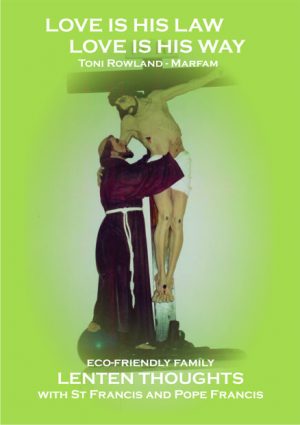
Recent Comments